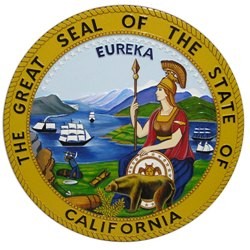California iPoker Bill (AB 431) Clears First Hurdle

For the first time in Californian history, the state Assembly Governmental Organization Committee (GO) has voted unanimously to pass an online poker bill, thus enabling the Adam Gray sponsored AB 431 to make its way through the Assembly Governmental Organization Committee. Interestingly, Adam Gray is actually the Go’s chairman, and on Monday his bill received the committee approval it needed, as running past its May 1st deadline would otherwise have meant the bill dying during the present legislative session. While AB 431 was being debated, the testimony of various disparate gaming interests was heard by the committee, and following announcement of the positive news, a coalition of Indian tribes headed by the Morongo Band of Mission Indians, commented:
“Finalizing the details of the legislation that will regulate California’s online poker marketplace still need to be worked out. But so far, 2015 is different. Hard lines and tough talk have morphed into open minds and dialogue. The vote today underscores the momentum building to help ensure that California finally passes Poker legislation.”
A Commitment To Advance iPoker
AB 431 is basically an empty shell of a bill, whose comprehensive details are expected to be filled out sometime in the future, including how to regulate internet poker, how much to charge for a licensing fee, what tax rate to set, and whether the horse-racing industry or “bad actors” such as PokerStars should be allowed to participate in a regulated Californian iPoker market.
Nevertheless, while the passage of AB 431 through the Assembly Governmental Organization Committee does not yet mean an online poker bill has passed in California, it does represent a commitment by the legislator to move the whole process forward to the next step. AB 431 is now scheduled to be further discussed on May 20th, as it it makes its way onto the agenda of the hearing of the Assembly and Senate Governmental Organization Committee, and as Steve Preiss, RISE Poker Executive VP of Business Development, explains:
“With AB 431 advancing through GO, the framework is at least in place for continued progress in bringing regulated online poker to California this year. Outstanding concerns such as track participation still need to be resolved, but today is clearly a win.”
Almost Overwhelming Support For AB 431
In order for the piece of legislation to move out of committee, a number of unknown amendments had first to be made to convince the various gambling groups to at least move to a point of neutrality on the issue. In the end just Rev. James Butler, who heads the California Coalition Against Gambling Expansion (ccage) , stood against AB 431, citing concerns over underage and problem gambling. The group further called for the state to block offshore sites from offering their products in California, rather than seeking ways to permit state sanctioned gambling sites to operate instate legally.
Meanwhile, previous opponents of AB 431 now seem to have moved towards a position of neutrality on the bill following a series of amendments, including the Agua Caliente Band of Cahuilla Indians, Pechanga Band of Luiseño Indians, and the Barona Band of Mission Indians. As mentioned, however, AB 431 is still just a shell bill and a number of stumbling blocks need to be overcome before further progress is made, not least concerning race track participation, and “bad actors”.
What Next For Internet Poker In California?
Three hearings have been scheduled over the next few months in order to debate the issue of online poker, with their discussions eventually forming the basis of AB 431. These include two Joint Assembly/Senate GO hearings, namely the “Overview of Gambling in California–Legality, Authorization and Regulation” on May 20th, and “The Legality of Internet Poker–How Prepared is California to Regulate It?” on June 24th. A further Assembly GO hearing is scheduled for 7th July, and in addition to discussing bills proposed by Assemblyman Mike Gatto (AB 9) and Jones-Sawyer (AB 167), it will also likely include Adam Gray’s AB 431, and may eventually provide a sense of what a final Californian poker bill will look like.
Needless to say, California iPoker legislation still faces considerable challenges going forward, including tax rates, fees, regulatory structure, and revenue sharing. While there will be heated discussions on the issue, Californian online poker is expected to generate as much as $350 million annually once fully mature, which should provide all the incentive needed for the disparate gaming interest groups to overcome their potential disagreement and move forward towards legislation.










